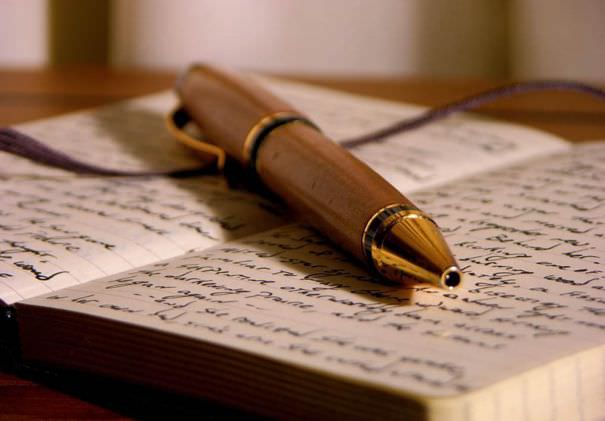
The history of Turkic literature spans a period of nearly 1,500 years. The oldest extant records of written Turkic are the Orhon inscriptions, found in the Orhon River valley in central Mongolia and dating to the 8th century. Subsequent to this period, between the 9th and 11th centuries, there arose among the nomadic Turkic peoples of Central Asia a tradition of oral epics, such as the Book of Dede Korkut of the Oghuz Turks—the linguistic and cultural ancestors of the modern Turkish people—and the Manas epic of the Kyrgyz people.
Beginning with the victory of the Seljuks at the Battle of Manzikert in the late 11th century, the Oghuz Turks began to settle in Anatolia, and in addition to the earlier oral traditions there arose a written literary tradition issuing largely—in terms of themes, genres, and styles—from Arabic and Persian literature. For the next 900 years, until shortly before the fall of the Ottoman Empire in 1922, the oral and written traditions would remain largely separate from one another.
http://en.wikipedia.org/wiki/Turkish_literature
During the Ottoman period, the prevailing literary form was poetry, the dominant dialect was Anatolian or Ottoman, and the main subject beauty and romance. The Ottoman Divan literature was highly influenced by Persian culture and written in a dialect which combined Arabic, Persian and Turkish. Separate from the aristocratic Divan literature, folk literature continued to dominate Anatolia where troubadour-like poets celebrated nature, love and God in simple Turkish language. Towards the 20th century, the language of Turkish literature became simpler and more political and social in substance. The great and politically controversial poet, Nazım Hikmet, inspired by the Russian poet Mayakowski, introduced free verse in the late 1930s. Nowadays, the irrefutable master of the Turkish popular novel is Yaşar Kemal, with his authentic, colourful and forceful description of Anatolian life. Young Turkish writers tend to go beyond the usual social issues, preferring to tackle problems such as feminism and aspects of die East-West dichotomy which continues to fascinate Turkish intellectuals.
The most well-known and widely-read writers of the 1950-1990 period can be listed as follows: Tarik Dursun K., Atilla lhan, Yasar Kemal, Orhan Kemal, Kemal Tahir, Tarik Bugra, Aziz Nesin, Mustafa Necati Sepetçioglu, Firuzan, Adalet Agaoglu, Sevgi Soysal, Tomris Uyar, Selim Ileri, Cevat Sakir (Halikarnas Balikçisi), Necati Cumali, Haldun Taner. Prominent poets in this period are: Behçet Kemal Çaglar, Necati Cumali , Oktay Rifat, Melih Cevdet Anday, Cemal Süreya, Edip Cansever, Özdemir Ince, Ataol Behramoglu, Ismet Özel, Ece Ayhan, Turgut Uyar, Sezai Karakoç, Bahaettin Karakoç, Ümit Yasar Oguzcan, Orhan Pamuk .
The Nobel Prize in Literature for 2006 is awarded to the Turkish writer Orhan Pamuk “who in the quest for the melancholic soul of his native city has discovered new symbols for the clash and interlacing of cultures”.
http://www.goturkey.com/turkiye.php?lng=en&content=culture
After the 18th century, efforts were made in Turkish (Ottoman) society to move into the orbit of Western civilisation. Following developments in the military and political fields, these began to be felt in literary life as well. Writers who had seen the West and were closely acquainted with it were the first heralds of this new literature. The appearance of the newspaper ‘Tercüman-ı Ahaval’ in 1860 is generally accepted as the start of the literature that developed under the influence of the West. Being neither official nor semi-official, the paper was the first to be brought out under a private initiative. The period it is regarded to have ushered in is further divided into sub-periods: The Administrative Reform, the Servet-i Fünun, Fecr-i Ati, National Literature and Republic and after periods.Important names in the Administrative Reforms Period: Namık Kemal, Şinasi, Ahmet Mithat, Ziya Paşa, Mahmut Ekrem, Abdülhak Hamit, Samipaşazade Sezai etc.Important names in the National Literature Period: Ömer Seyfettin, Mehmet Akif Ersoy, Halide Edip Adıvar, Reşat Nuri Güntekin etc.Important names in the Republican Period and after: Ziya Osman Saba, Yaşar Nabi Nayır, Nazım Hikmet, Orhan Veli Kanık, Oktay Rıfat, Cahit Külebi, Hüseyin Rahmi Gürpınar, Peyami Safa, Kemal Tahir, Aziz Nesin, Necati Cumalı, Selim İleri, Fakir Baykurt, Orhan Pamuk etc.
http://www.kultur.gov.tr/EN/Genel/BelgeGoster.aspx?17A16AE30572D313FFB2CB2AD591CE26BFC39FECE206F9A6

Leave a Reply
You must be logged in to post a comment.